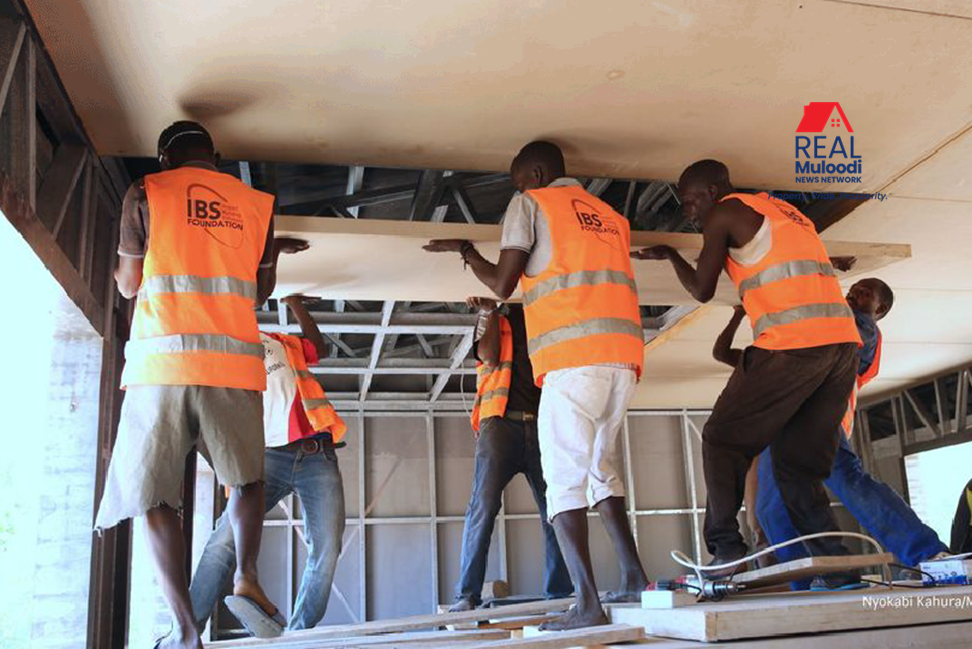UGANDA, Kampala | Real Muloodi News | Uganda is a home for about 1.3 million refugees, most of whom have fled violent conflicts in neighbouring South Sudan and Congo.
Although Uganda has a generous and welcoming policy, the refugees have had a negative impact on resources and the environment in the country. The high demand for timber and firewood for new settlements has resulted in massive environmental degradation as millions of trees have been cut down.
According to Malteser International, a humanitarian relief agency, the continued refugee influx could worsen unemployment and put pressure on an already poor social infrastructure in Uganda.
To address this issue, Malteser International, in partnership with Impact Building Solutions Foundation (IBSF), an Ugandan social enterprise, are committed to promoting sustainable alternatives in construction.
IBSF specializes in eco-friendly construction materials, such as strawboard panels. They manufacture strawboard panels from compressed rice straw, one of the world’s largest bio-waste crops.
Most people in Northern Uganda cultivate rice as their staple food. Every cultivated ton of rice is estimated to create about 500 pounds of rice husk and straw.
Farmers usually burn the husks and straw as waste in their open fields, causing air pollution to the environment and serious health problems.
To save the environment, Malteser International and IBSF are turning this organic waste into construction materials to produce building panels.
“Using rice straw bales to construct houses comes with many advantages,” says Roland Hansen, Head of the Africa Department of Malteser International. He explains:
“Apart from being eco-friendly, this sustainable building method helps us reduce the environmental pollution that arises from burning rice husks. Local rice farmers can now benefit from an additional supply chain, gaining new income-earning opportunities.”
Straw bale construction is an alternative to the traditional method of fired clay brick that uses a lot of firewood and water and is environmentally unsustainable. The partnership of Malteser International and IBSF helps to provide zero-carbon building alternatives.
The initiative will also promote a circular economy in the Northern region and create a new supply chain that increases income for local farmers in Uganda.
According to Eckhardt Dauck, the Managing Director of IBSF, the production process of the strawboard panels also creates jobs and training opportunities for the youth. “The training opportunities we offer in the production, construction and agricultural sectors are beneficial for young people,” Dauck says. “There are many potential uses for straw panels in the East African region. As part of our engagement for refugees, we are looking into building schools, health centres or shelters for refugees with special needs and low-cost housing for families earning little.”
Malteser International recently constructed a carbon-neutral high school building in the Rhino refugee settlement in northern Uganda to promote youth education in the camp.
IBSF has helped put a Sustainable Construction and Research Centre within Makerere University campus to promote further research into eco-friendly building techniques and materials.
Improved vocational training and increasing employment opportunities in Uganda shall benefit both workers at IBSF and the youth in the Northern region.
READ MORE LIKE THIS:
Ugandans in the Diaspora Can Own Affordable Homes in Mirembe Estates Sentema
Home Renovations Part 1: How to Cut Costs without Cutting Corners



